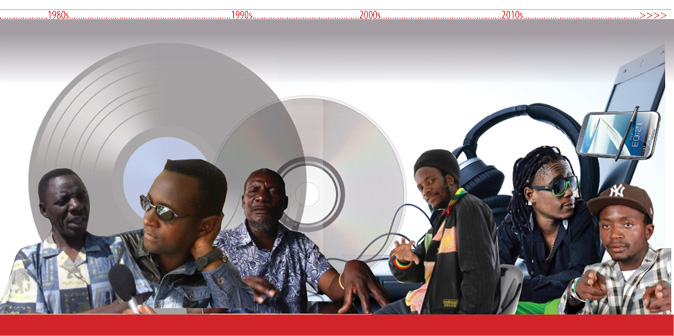
Conclusions have been drawn that the country’s most popular music genre — sungura — is lying somewhere in a creepy, lonely graveyard.But, no, sungura is not dead yet.
By Tapiwa Zivira
Those who sing it — Alick Macheso, Nicholas Zakaria, Peter Moyo and Sulumani Chimbetu, among many — are simply behaving like doctors who administer expired medicine to a patient.

In other words, sungura musicians are failing to adapt to the new trends of making, producing and marketing music.
In the 90s era — when sungura made its name — musicians recorded live instruments and vocals, and engineers manually mixed the music without digital computer assistance.
This meant producing a six-track album was such a long process that musicians had to put in extra hours rehearsing, while producers took long to polish the raw recordings.
However, painstaking as the process was, the sweat of musicians, engineers and producers yielded huge rewards.
- Chamisa under fire over US$120K donation
- Mavhunga puts DeMbare into Chibuku quarterfinals
- Pension funds bet on Cabora Bassa oilfields
- Councils defy govt fire tender directive
Keep Reading
Good music sold well, giving musicians food on the table and for the fans, nothing beat the joy of finally getting a copy of one’s favourite music even after having waited for a year or two.
Fast-track to 2015, fans are no longer patient enough to wait for two years for something new from Macheso or Chimbetu.
Zimdancehall has ushered in fast and constant production of new content, and that apparently could be the reason for the demise of sungura.
Just the doctor giving expired drugs to a patient, sungura musicians are still waiting for a year or two to release six or so new songs.
Zimdancehall musicians produce new tracks every day.
And they are satisfying a market that has online content enough to make them forget a song that was produced a week ago.
With the internet offering so much — from video, to audio to text — today’s market has become accustomed to the culture of expecting new things every minute.
A simple look at Sulumani’s last album — Gunship — confirms that while it was a good production, fans played and quickly forgot it, opting for new content.
Looking for new songs has become like checking one’s Facebook or Twitter.
With increased internet speeds and improved access, sharing and downloading songs has become easier than inserting a CD into a DVD player.
The CD itself is dying.
Still stuck in the past, sungura musicians still believe their music can trend for a whole two years.
Zimdancehall musicians have, for their good, adapted to the new, sharing their music online for free and not chasing after CD sales.
Money, they realise, is in show attendances, and in order for people to attend a musical show, they have to expect something new.
As a result, Zimdancehall shows are currently doing well at a time when sungura dinosaurs are still mourning the death of music sales.
To the disadvantage of many sungura artistes, they have continually delayed the release of their albums for fear of piracy.
By delaying, sungura musicians alienate themselves from fans.
A perfect example is that of Macheso who last released an album three years ago.
Understandably though, sungura musicians — unlike most dancehall neophytes — have bands to take care of.
Most dancehall musicians do not have backing bands and ride on readily produced computer -generated riddims.
But with technology advancing every day, it is time sungura musicians considered all options available — no matter how radical — to speed up releases.
Instead of waiting for two years to make a full album, they can release singles regularly, even by use of electronically-generated beats like what dancehall artistes do.
New ways of professionally and effectively producing electronic sungura beats can always be explored.
Since making a track of more than 10 minutes can require more creativity than making a three-minute riddim, sungura artistes can even consider cutting down the lengths of some of their songs to make time for creativity shorter.
Remember, most old sungura songs had not more than six minutes play time until Dembo came in.
Sungura needs the right medicine.
The right medicine is utilising technology.











